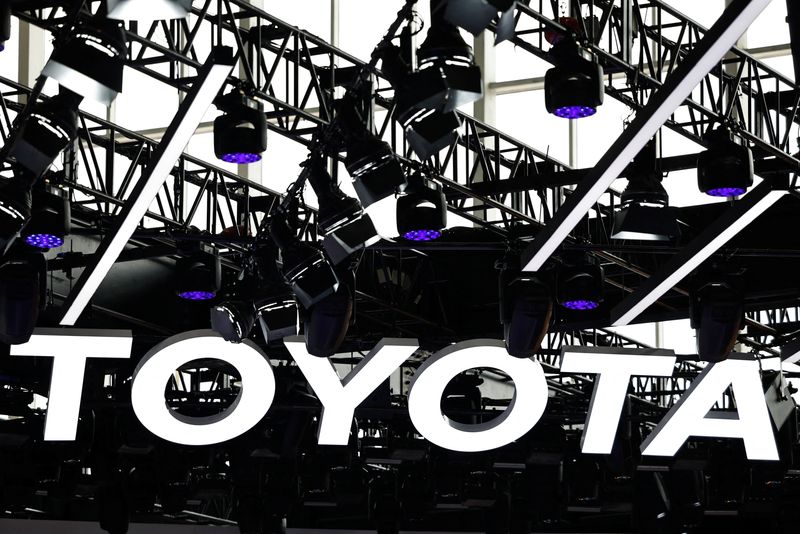By Maki Shiraki
TOKYO (Reuters) – Toyota aims to make at least 2.5 million vehicles a year in China by 2030, three people said. An overhaul that will ensure that Chinese sales and production activities come closer together and local managers are given a freer hand in development.
The plan, which has not previously been reported, represents a strategic pivot for the world's best-selling automaker in the world's largest auto market, underscoring its ambition to regain sales lost in recent years to BYD and other local players progress.
Toyota's strategy contrasts with that of other global automakers, including Japan, which are either scaling back or withdrawing from China.
The goal is to increase production to as many as 3 million vehicles a year by the end of this decade, two of the people said. However, a formal target has not yet been identified, the three people said. All the people declined to be identified because the case has not been made public.
The increased number represents a 63% increase over the record 1.84 million vehicles it produced in China in 2022. Last year it produced 1.75 million vehicles there.
Toyota has notified some suppliers of the planned expansion, hoping to reassure parts makers of their commitment to China and thereby secure its supply chain, the people said.
In response to questions from Reuters, Toyota said in a statement: “With the fierce competition in the Chinese market, we are continuously considering various initiatives.” It said it would continue to work on making “better and better cars” for the Chinese market.
The Japanese automaker wants to bring the sales and production operations of its two Chinese joint ventures closer together to improve efficiency, two of the people said.
The aim is also to transfer as much of the development responsibility as possible to China-based personnel who have a better understanding of local market preferences, especially in electrified and connected car technology, two of the people said.
The moves indicate a growing realization within Toyota that it must rely more on local staff to take the lead and accelerate product development in China, one of the people said, adding that otherwise it “will be too late.”
Legacy automakers, including Toyota, have been outmaneuvered in China, while domestic EV makers are rapidly rolling out affordable battery-powered cars with advanced technology.
Last year, Toyota announced plans to deepen cooperation between its R&D center in Jiangsu province and its two local joint ventures.
One problem, representative of Toyota's broader problems, is that cars developed independently by joint venture partners sell better than cars produced jointly with Toyota.

